Jacob Beaton quit a high-powered consulting job in downtown Vancouver and moved with his wife and kids to a homestead in northern B.C. in search of a back-to-the-land dream. The Tsimshian man planned to start a farm, using regenerative techniques to grow enough food to provision his family and create a modest market garden while teaching people from local First Nations farming techniques on the side.
Nearly three years later, Beaton's homesteading dream has become something much larger. His farm has blossomed into a hub for Indigenous people pushing back against decades of colonialism to reclaim sovereignty over their food, with aspiring Indigenous farmers coming to learn from across B.C.
The farm has been so successful in teaching hundreds of people farming techniques and other skills like carpentry and mechanics that Beaton is contacted by educational institutions for advice and regularly asked to speak at public events.
But perhaps even more importantly, the farm serves as a community food hub where anyone is welcome to stop by for a meal. It is also a place of solace for elders whose childhoods were marked by the erosion of food sovereignty due to government policies that limited access to traditional wild foods like salmon and game along with access to farmland, farming equipment and markets.
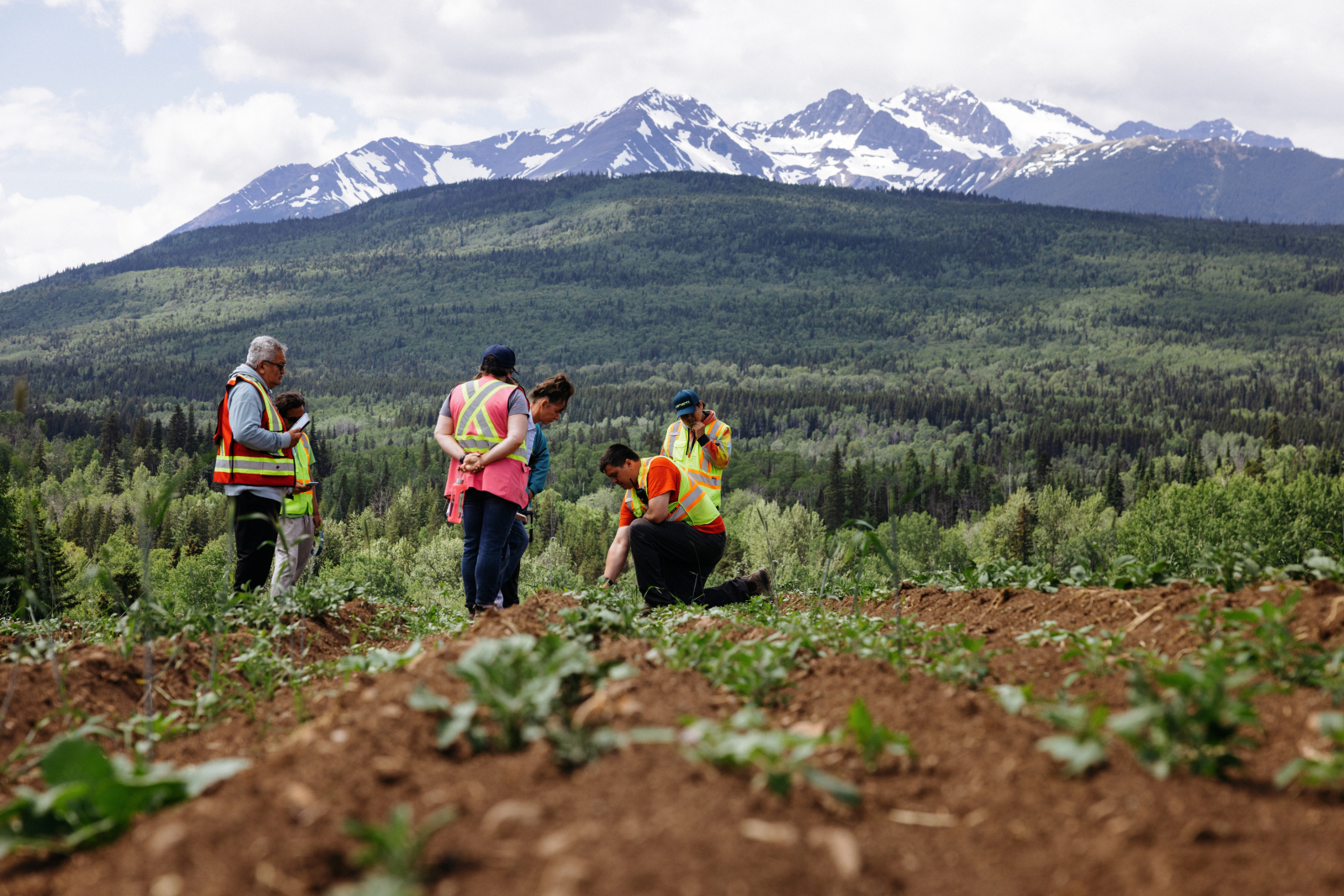
As late as the 1960s, Indigenous people in northern B.C. were routinely pushed off their land and small subsistence farms, and hundreds of children were taken away to foster homes or residential schools by the federal government. Other laws limited Indigenous people's ability to compete with white farmers, including rules that prevented them from selling produce off-reserve, Beaton said. This law was only officially repealed in 2014.
"We had somebody come last year who is an elder and was traumatized for life by having been burnt out of their home and having their land stolen in this area" in the late 1960s, Beaton said.
This is the legacy he is trying to help reverse, all while teaching people regenerative farming skills that promote biodiversity and can adapt to the climate crisis. Regenerative farming is an approach to farming that focuses on boosting the health of soil — a major carbon sink — and reducing or eliminating the use of artificial pesticides and fertilizers.
The farm integrates regenerative techniques into its training, helping students understand how to interpret soil health and use crop rotations, chickens and livestock to bolster soil health and food production. The students use these approaches to grow everything from potatoes — they produced 15,000 pounds last year — to produce like carrots, lettuce, spinach, broccoli, cabbage and tomatoes. They also save seeds, donating them, along with baby starter plants, to people from nearby communities who want to grow their own food.
The farm produced enough to supply its kitchen with root vegetables and produce and had enough left over to donate more than 20,000 pounds to nearby Indigenous communities and a community group in Vancouver's Downtown Eastside.
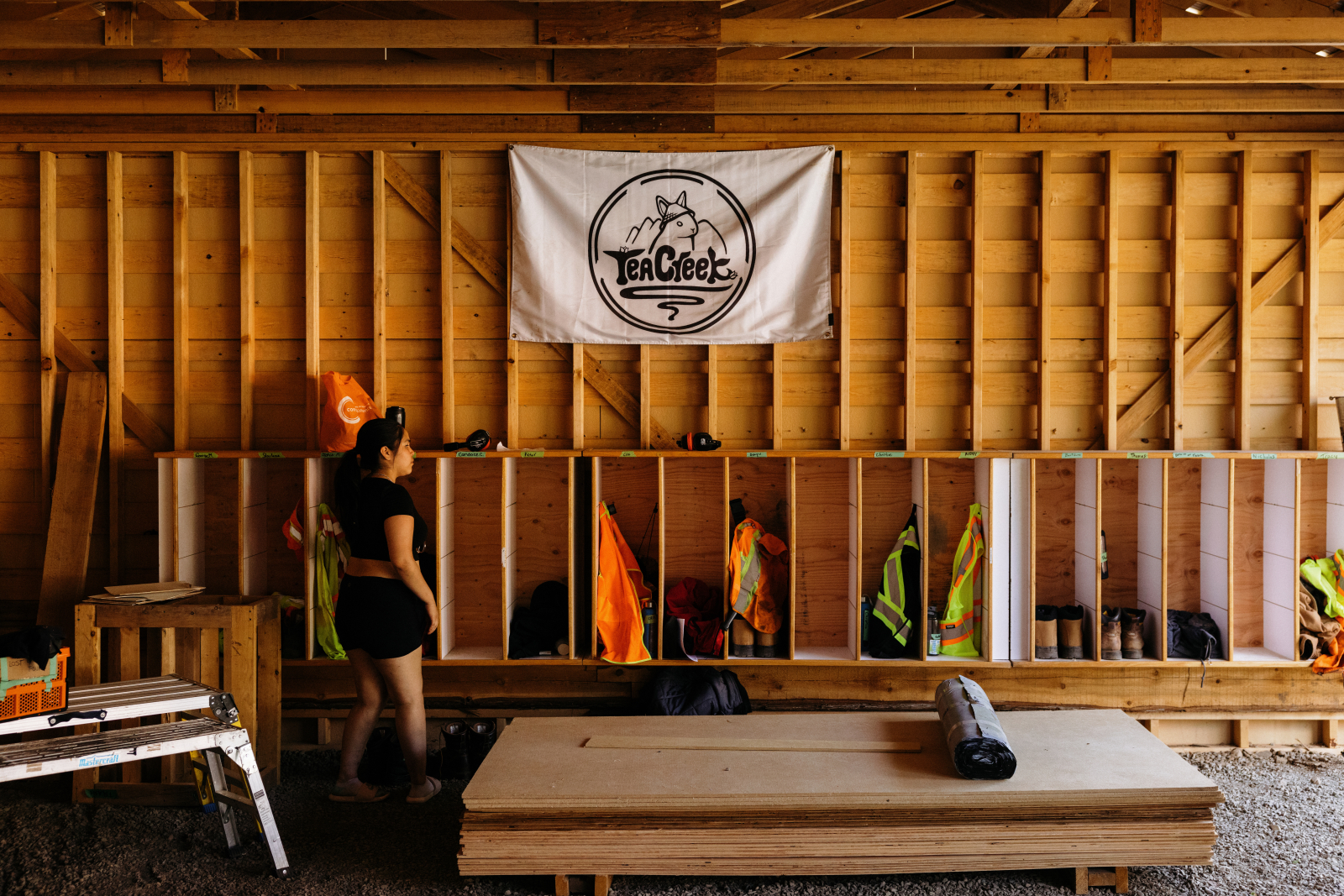
Still, Beaton said Tea Creek is regenerating more than just soil; it is reviving people's "blood memory" of farming and the connection to food, community and their own well-being that it offers. Helping more people foster that connection has transformed Beaton's "quiet little homestead" into a training centre that is making "a lot of noise" when it comes to regenerating Indigenous people's food sovereignty — and the land.
According to the organization's 2022 impact report, 180 Indigenous people enrolled that year for training courses. More than 100 graduated from their course of study, and the cohort had gender parity. The farm offers classes in a wide range of topics related to agriculture and food, like regenerative growing techniques, safe food handling, small engine mechanics and carpentry.
Tea Creek also hosted some 1,200 visitors, from elders to school and community groups. About 1,000 people a month had hot breakfasts and lunches cooked using produce from the farm.
Beaton attributes Tea Creek's success to the organization's mostly Indigenous staff and the decision to only teach a handful of students in each class, giving them more one-on-one time with their instructor. The classes also let trainees work on real-life projects while teaching their skills to others, approaches he said work well.
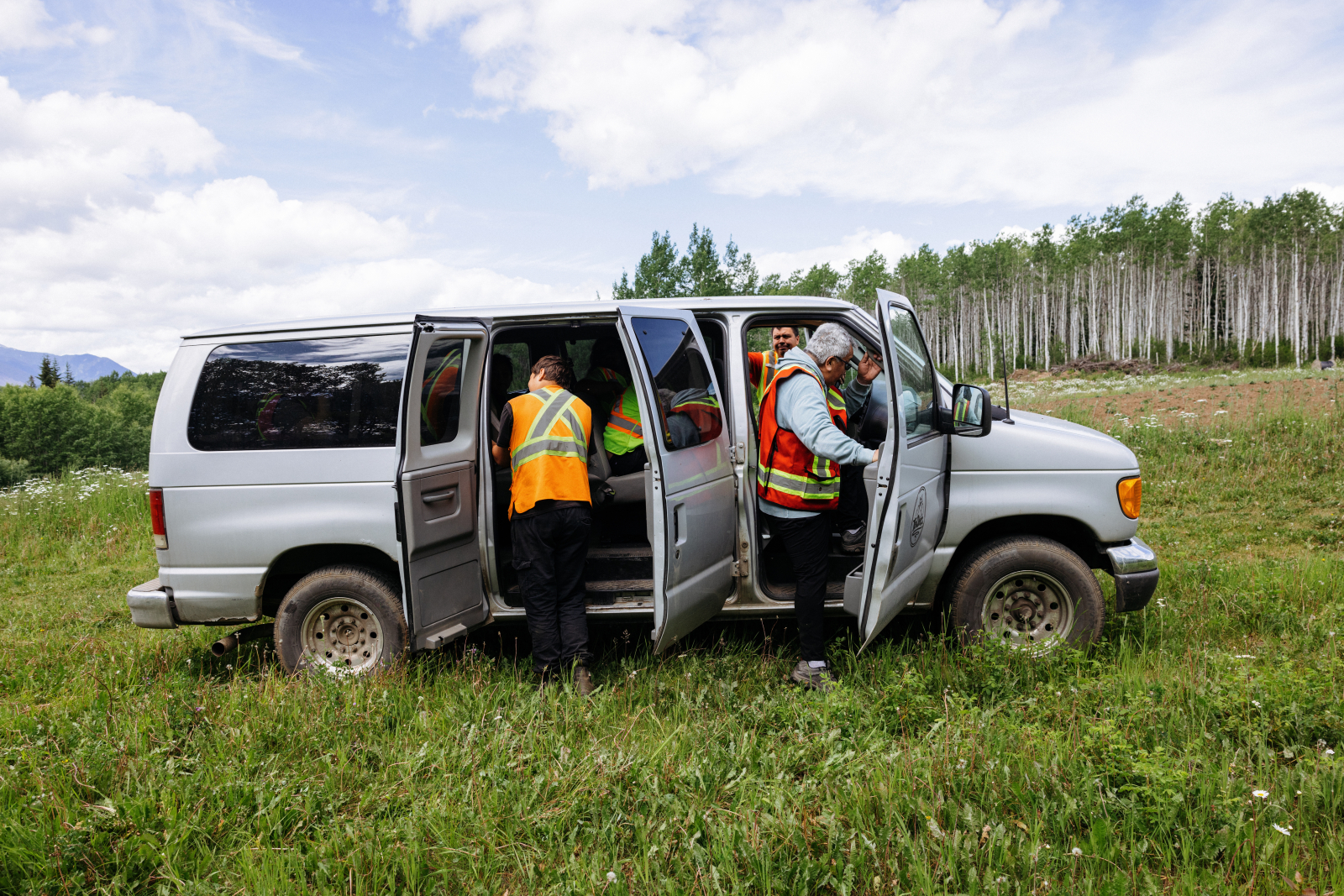
But despite this farm’s success, colonialism and racism still loom, reflecting the challenges many Indigenous farmers face in trying to make their businesses successful, Beaton said.
For instance, many of the farm-specific financing tools non-Indigenous farmers use are difficult for Indigenous people to access. Banks are hesitant to extend a loan to Indigenous producers, he said, regardless of the quality of their business plan.
One bank refused Beaton a loan for fear he would transfer his farm onto federally owned reserve land. That concern is "ridiculous," he said, because private land can only be added to reserves by a band's communal decision and must be debt-free.
"You start pulling apart these arguments and they fall apart really fast," he said.
Banks aren't the only problem. For the past year, Beaton has struggled to obtain the equivalent provincial funding as non-Indigenous food organizations to build a food hub. Food hubs are shared commercial food processing spaces that allow people and small businesses to share food processing facilities without needing to invest in their own commercial kitchens. The B.C. government has in recent years been working to build a network of food hubs around the province. There are none in northern B.C.
Tea Creek already fulfils the role, Beaton argues, despite lacking key infrastructure like a communal dining hall, enough chairs and a purpose-built kitchen.
"We're doing all the things that food hubs are supposed to do. We're processing food or distributing food, we're providing food education," he said. "There's so much more the food hub could do if we had a building and we had that infrastructure; we could be processing far more food and increasing our local Indigenous food security and food sovereignty."
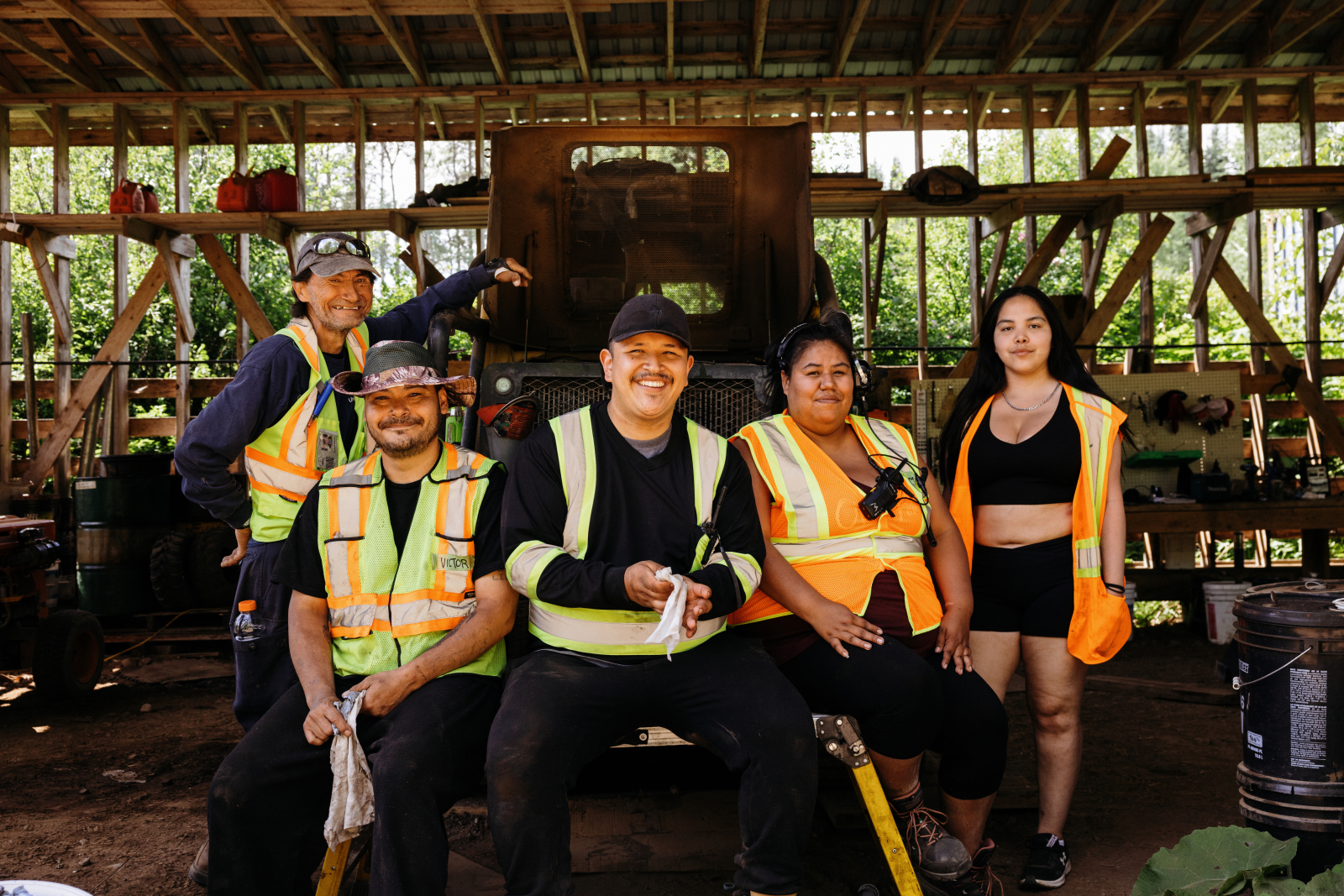
Beaton said his organization has received some provincial funding but got less than non-Indigenous projects in larger centres.
In a statement, the B.C. Ministry of Agriculture noted that since 2018, it has allocated more than $30.6 million to programs to support Indigenous food security and sovereignty. Since 2021, it has also convened an advisory council to help guide its support of Indigenous food systems.
Despite the monetary challenges, Beaton is proud of what he has built since he moved to his northern B.C. homestead.
"It's totally changed and grown in ways I never imagined," he said.
"Did I ever think I'd be a farmer? No. Did I ever think I'd be the head of an Indigenous food sovereignty movement? No. Did I ever think I'd be setting standards and post-secondary education? Definitely not."
Great project, wish it well,
Great project, wish it well, hope it finds some things that large commercial farms can use. But, I gotta tell ya, large commercial farms will only change procedures to ones that are even cheaper, or to ones they've been forced to adopt by regulation. Hoping for a future story about the lawyers trying to craft that legislation...

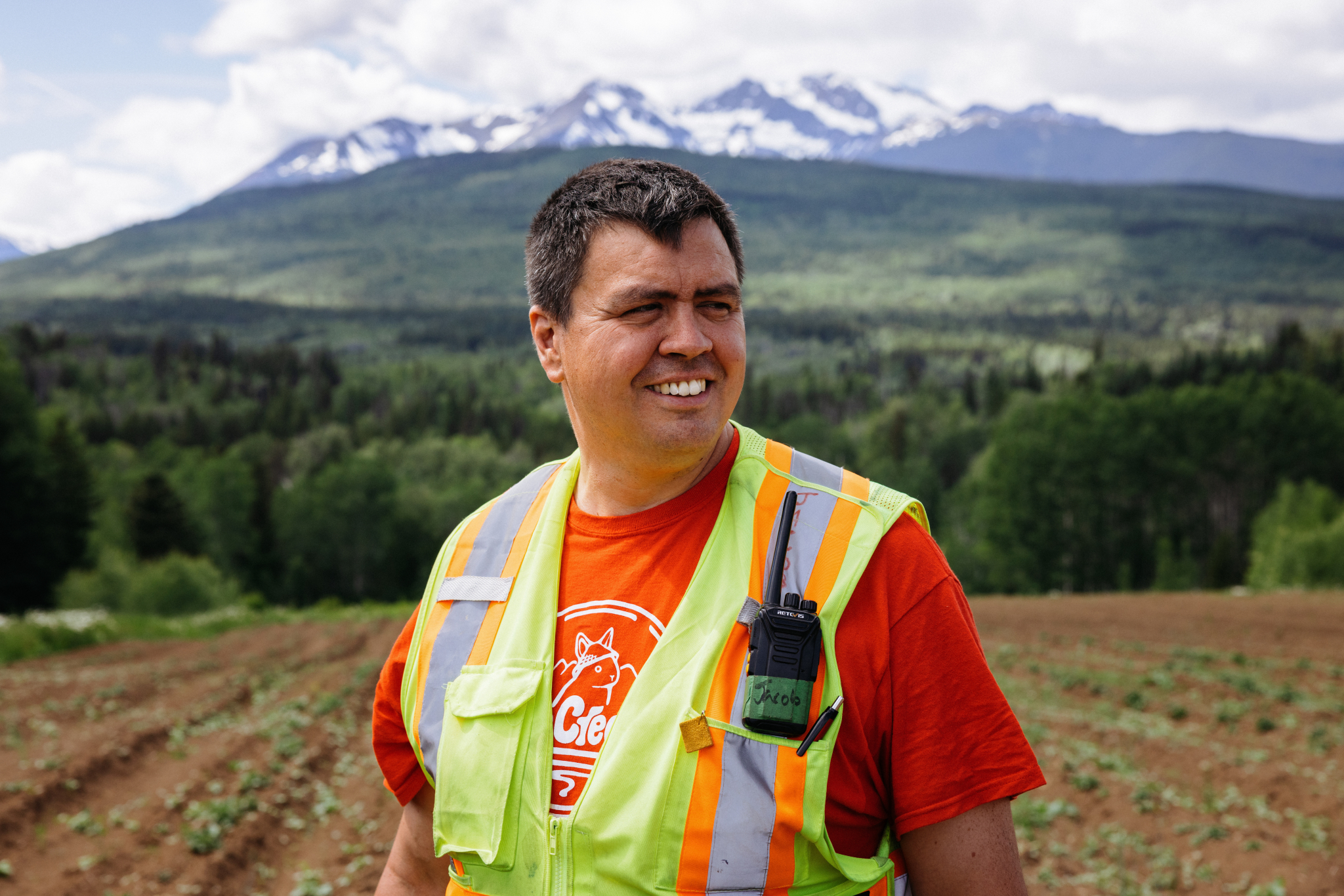


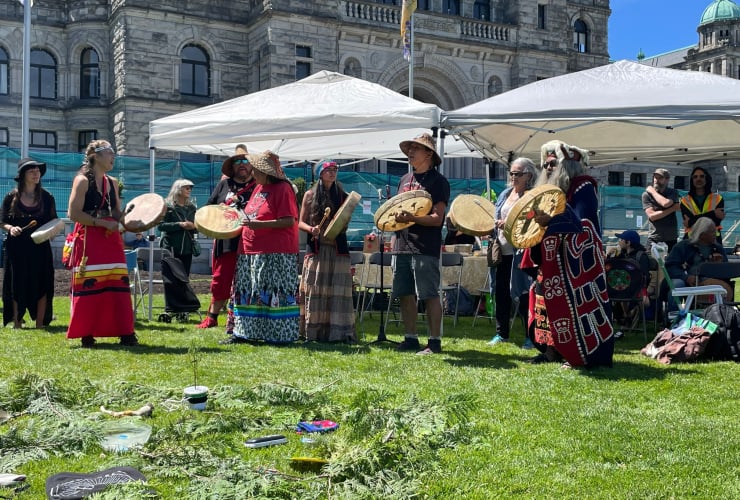

Comments